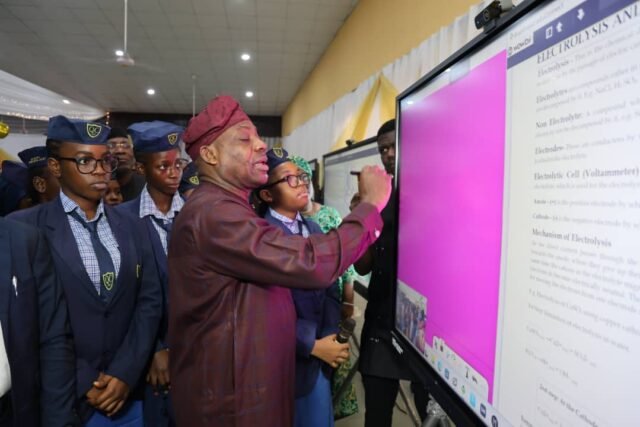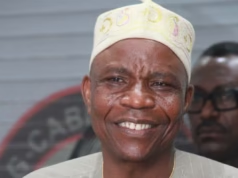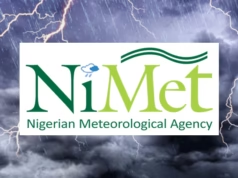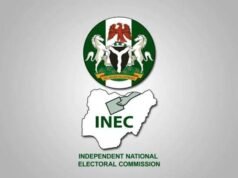Nigeria’s public schools are entering a new era of learning. Chalkboards are gradually giving way to smart boards — interactive digital tools designed to make lessons livelier, more visual, and more engaging. Through a joint effort between the Federal Government, the Universal Basic Education Commission (UBEC), and State Universal Basic Education Boards (SUBEBs), over 1,000 interactive smart boards are being distributed to public schools across the country.
This move marks a significant milestone in Nigeria’s “Digitalisation of Public Schools Initiative,” launched recently at Queens College, Yaba, Lagos. The project aims to enhance teaching and learning by merging traditional education with technology-driven instruction. At the event, Minister of State for Education, Dr. Tunji Alausa, highlighted the government’s vision to ensure Nigerian children are not left behind in the global digital revolution.
“We are transitioning from the old ‘chalk and talk’ method to interactive, technology-enabled classrooms,” Dr. Alausa said. “Education must evolve with the world of innovation, so our young people can develop critical skills in STEM, AI, and digital literacy.”
According to the minister, the smart boards will not only make learning more interactive but will also build students’ confidence and creativity through collaboration and real-time participation.
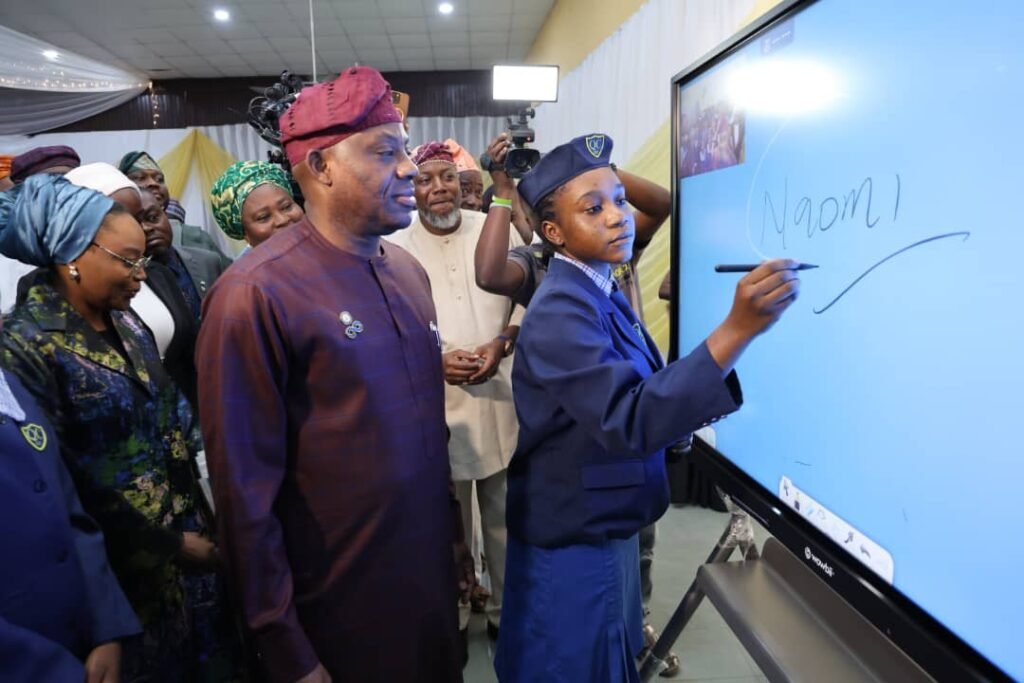
Table of Contents
Technology Meets Teaching
Smart boards represent more than just new classroom equipment — they symbolise a shift in pedagogy. With these digital boards, teachers can incorporate videos, animations, and simulations into lessons, while students can participate by touching and manipulating the screen directly. Lessons on mathematics, science, and even languages can now come alive with multimedia explanations that appeal to different learning styles.
Teachers who once relied solely on textbooks and blackboards are now being trained to blend technology with traditional instruction. UBEC has developed training modules to help educators in public schools understand how to use the boards effectively, from lesson planning to interactive teaching techniques.
Dr. Alausa emphasised that education in the 21st century must prepare students for emerging realities:
“Our classrooms must nurture creativity, collaboration, and critical thinking. These smart boards are tools to help teachers guide students toward those skills,” he said.
Beyond teaching, the initiative also promotes digital inclusion. By integrating technology into public schools, the government hopes to close the digital gap between private and public education systems — and between Nigeria and other tech-advanced countries.
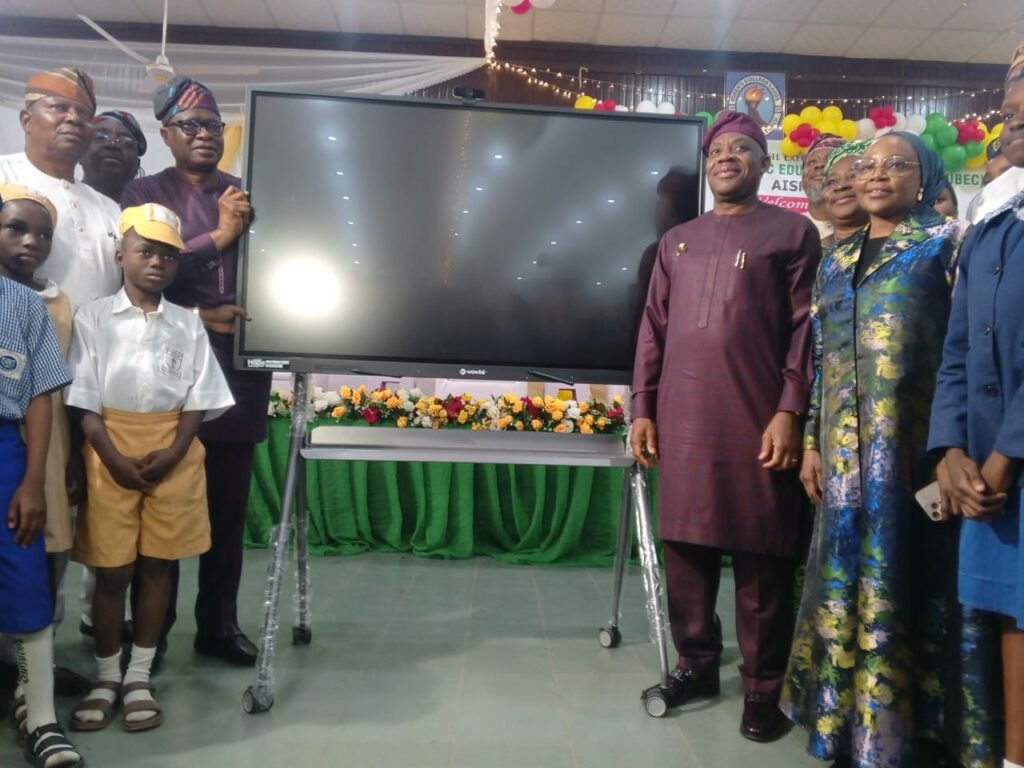
UBEC, SUBEBs, and the Drive for Equal Access
UBEC’s Executive Secretary, Mrs. Aisha Garba, described the project as part of the commission’s long-term goal to strengthen access to quality education across all regions. She noted that digital education should not be limited to urban centres alone.
“Our mission is to bridge the digital divide in education. Every child — whether in Lagos, Sokoto, or Bayelsa — deserves access to modern learning tools,” she said.
Mrs. Garba acknowledged that infrastructural challenges persist, particularly in rural public schools where power supply and internet connectivity remain unreliable. However, she assured that UBEC and the state education boards are working with local governments and private partners to ensure proper maintenance, steady electricity, and technical support.
The project’s structure is designed to be inclusive. Each state’s SUBEB will identify public schools that meet readiness criteria — such as availability of classrooms, power sources, and trained teachers — before the boards are installed. This approach aims to ensure efficiency and equal distribution while avoiding concentration in only a few cities.
Education stakeholders have welcomed the move, calling it a “game changer” that could improve Nigeria’s learning outcomes if sustained. According to education analysts, interactive classrooms could foster better comprehension, student participation, and creativity.
Looking Ahead: Challenges and Promise
Despite the enthusiasm, experts caution that the real success of the initiative depends on consistent implementation and maintenance. Many public schools still struggle with inadequate infrastructure, and without stable electricity or internet access, the smart boards could end up unused.
Teacher adaptation is another major concern. For decades, most public schools educators have taught using chalkboards. Transitioning to digital teaching requires not only training but a mindset shift. Continuous professional development will be key to ensuring that teachers can confidently use technology to improve learning.
UBEC has promised ongoing teacher support, software updates, and monitoring to ensure sustainability. The commission also plans to evaluate the impact of the smart boards on student performance and engagement in the coming years.
For students, the initiative could mark a new learning culture — one that blends fun with functionality. Through interactive lessons, pupils can visualise abstract topics like fractions, photosynthesis, and geography in real time. The boards also allow for instant feedback, quizzes, and collaborative exercises that make learning more dynamic.
Educationists believe that, if properly maintained, the project will nurture digital fluency among Nigerian students — preparing them for a world increasingly shaped by technology.
As Dr. Alausa summed up at the Lagos launch:
“The future of learning is digital. These smart boards are just the beginning of our journey to modern, inclusive, and globally competitive education for Nigerian children.”
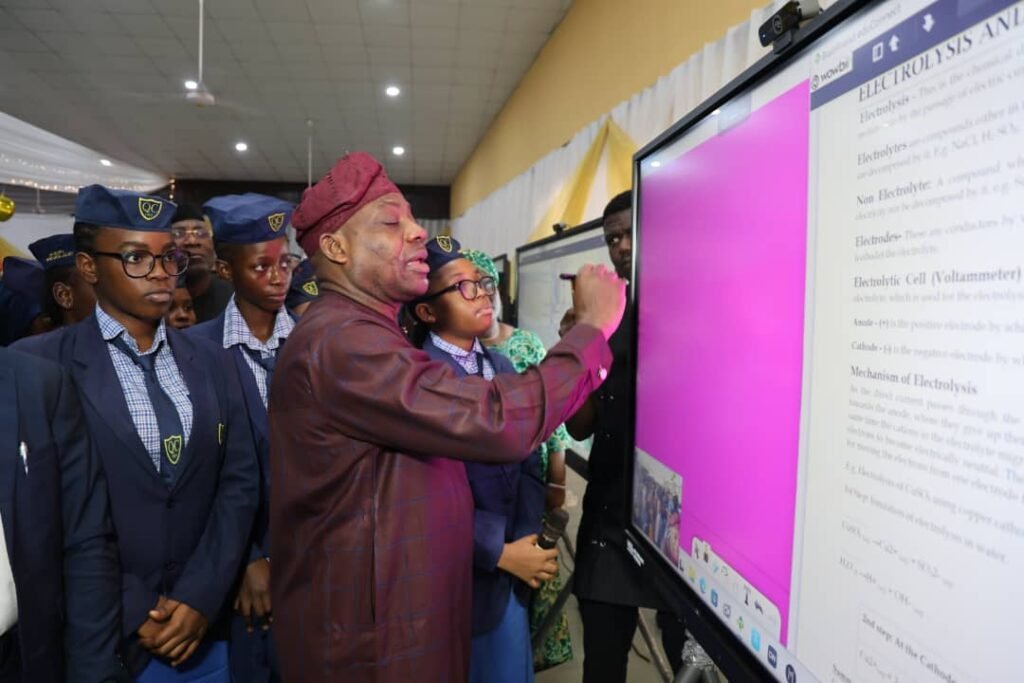
Conclusion: Toward a Smarter Future
The introduction of smart boards in Nigeria’s public schools represents more than a technological upgrade — it’s a cultural transformation in the country’s education system. It signals the government’s intent to reposition Nigerian learners for a future where knowledge, innovation, and technology intersect.
Still, success will depend on consistent funding, teacher commitment, and infrastructural support. If the challenges are addressed, Nigeria could soon boast classrooms where students are not just taught, but truly engaged — learning with curiosity, confidence, and creativity.
In every sense, these smart boards symbolise a promise: that every Nigerian child deserves not just access to education, but access to quality, interactive learning that prepares them for the digital world ahead.
Join Our Social Media Channels:
WhatsApp: NaijaEyes
Facebook: NaijaEyes
Twitter: NaijaEyes
Instagram: NaijaEyes
TikTok: NaijaEyes
READ THE LATEST EDUCATION NEWS


